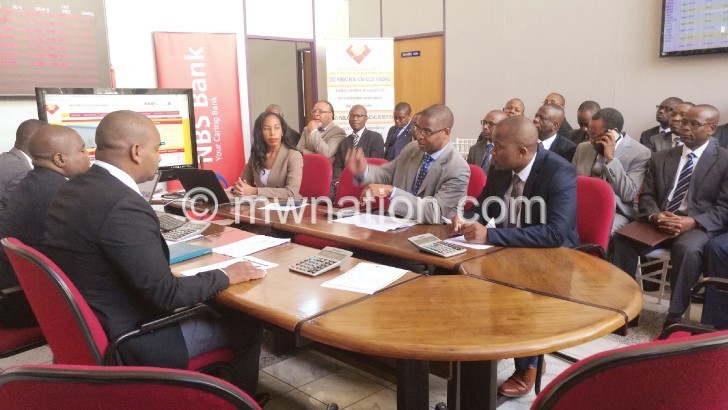Why the capital Market is stagnant
Capital markets— marketplace where buyers and sellers can engage in and trade in financial securities—for both debt and equity has remained underdeveloped for a long time. This has resulted in sub-optimal investment in areas critical to the country’s development.
The capital market plays a critical role in channelling savings from household and corporations into long term investment by both government and the private sector.

In Malawi, however, the stock market only largely trades in equities with no corporate bond issuances.
While government has issued bonds and subsequently listed on the stock exchange, there is little or no secondary trading. Secondary trading however, does not bring in new investments.
Chancellor College economist Exley Silumbu says the depth expected in establishing the capital market has not been forthcoming but the interventions by the central bank to promote financial inclusion has helped to some extent.
“Since 1990s, it was thought that the financial markets were very much repressed with too much government interventions and underdeveloped in terms of exclusion of most Malawians from the banking system. That is why we went into financial deepening policy to control interest rates and liberalisation of the banking sector and so forth”
“A lot of banks have been created. There have been a milestone to establish the stock market, but it has been stagnant. No new company has been listed in a long time” said Silumbu.
But chief executive officer of the Malawi Stock Exchange (MSE), John Kamanga, has more explanations to why the market—for debt securities in particular—is growing at a very slow pace than desired.
“The uptake of securities at the primary market is mostly done by institutional investors such as pension funds who invest for the long term. The institutional investors already have excess funds which are looking for an investment home for the same and, therefore, it becomes difficult for them to participate in the secondary market by disinvesting what they had subscribed for in the primary market” said Kamanga.
In terms of trading infrastructure, the fact that the MSE is still on manual trading system has proven to be difficult to support the trading of securities with short settlement cycles of one to two days.
MSE has however taken up initiatives to automate its trading platform and the implementation of the system will be done by the end of the first quarter of 2018.
The unpredictability of the macroeconomic fundamentals for a longer period also comes to play as most retail investors shy away from locking up their funds for longer period hence low participation.
For instance, high inflation and interest rates prevent businesses from taking long term investment decisions while high budget deficits and uncertainty of donor support has led government to borrow largely through short term instruments.
“The path which the government through the Treasury and Reserve Bank of Malawi [RBM] have taken to tame the fiscal expenditure and money supply circulation respectively has started bearing fruits where inflation and interest rate have gone down.
“This, however, needs to be sustained for the long haul to enable investors in the capital market takes both short and long term investment initiatives’ adds Kamanga.
The absence of an effective capital market could leave most productive projects which carry development agenda unexploited.
The market connects the monetary sector and the real sector and therefore facilitates growth in the real sector and economic development. n





